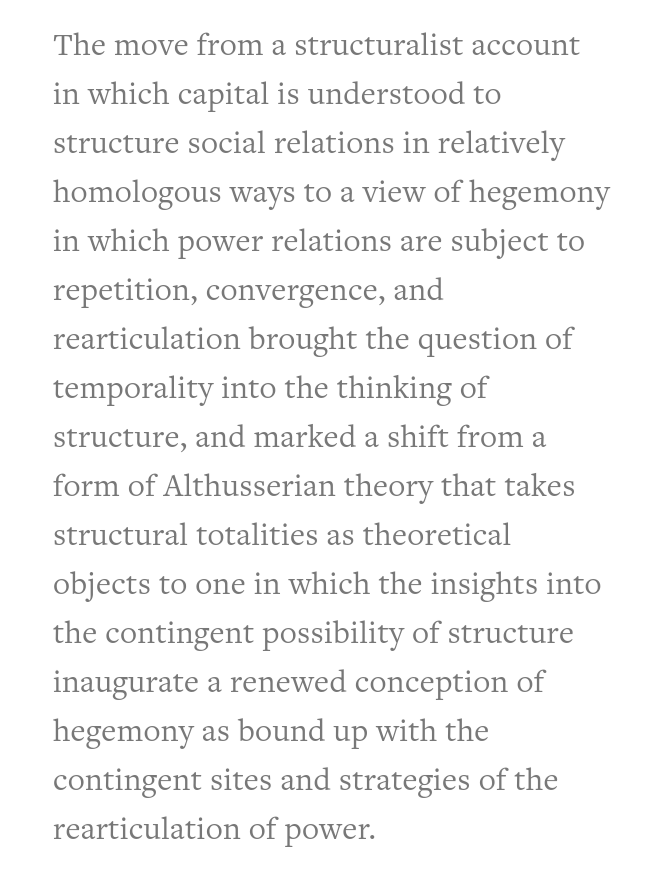Some working #edu thoughts:
'Schooling' in academic writing land is different from learning & education. Schooling works at many levels but especially through techniques of body management with the goal of internalizing this as self-control - the goal: maximal available attention
'Schooling' in academic writing land is different from learning & education. Schooling works at many levels but especially through techniques of body management with the goal of internalizing this as self-control - the goal: maximal available attention
for learning. Doesn't mean learning will happen but tries to create an environment and amenable 'bodies' in the jargon, for this to happen. Some #TLAC techniques fall into this. The line between power as domination and power as empowering of students is a fine one. For some the
use of the techniques is problematic. Others are concerned with the ends to which the techniques are put. Others stress the context and culture that shift how the techniques are experienced (as dehumanising or vitalising). But 'schooling' has been often been critiqued as a means
of socializing students into total acceptance of Teacher and the Knowledge they impart - and through this accepting the structural injustices of society as they are. This, of course, is debated - and may or may not be the effect of #TLAC techniques (that's an empirical question).
I can see that lots of these are useful especially I started teaching (with no PGCE). There was a site called TeachersTV and I consumed Teaching with Bailey voraciously. I do also think that some forms of teaching are a lot about performance so paying attention to what you
are doing and students - even forensically can be helpful. But (and I don't think an TLAC advocate would disagree) building relationships make a difference to how the techniques are experienced. (Do students think you're 'out to get them'? Or power-tripping?) What could get lost
is what you're actually trying to teach. 'The best of what has been thought'? Sure, but that moves the problem back a step - who decides and even then there's probably too much, so there is always filtering and a sense of purpose and context to curriculum.
I think that's why I'm uneasy with learning as only or mainly a change in long term memory. By that definition it wouldn't seem to matter if what was being remembered what true (+/good+/beautiful). If pursued to the exclusion of other things it doesn't matter how the long term
memory is changed just that it is and as efficiently and effectively as possible (no matter if there are other costs paid or other benefits ignored) and appears to try to side-step the value judgements that accompany debates about the 'what' of what is taught and learnt.
In short - we need to keep the what, how, when, where and why of learning in dialogue.
We can consider them in bits but we get problems of we only consider them in bits.
• • •
Missing some Tweet in this thread? You can try to
force a refresh












